 Your new post is loading...
 Your new post is loading...

|
Scooped by
Gust MEES
|
How blockchain can help
The report explains how blockchain technology can be used to generate and store sensitive personal records online or on mobile apps - such as birth certificates, driving licences or professional qualifications - for instant proof of identification. Universities can create degree certificates that can be shared by graduates with prospective employers at the touch of a button. They can be instantly verified, with no need to run a credentials check with a third party. It frees us all from the time-consuming, inefficient, paper-based credentials system, saving time and money, improving efficiencies and helping to eliminate fraud.
These systems are already in use. Here at PwC, we have partnered with, among others, the Institute of Chartered Accountants and a major European university to develop our Smart Credentials blockchain platform. It shares the credentials of chartered accountants and technology graduates in a ‘digital wallet’, saving a huge amount of time and money in the verification process, while combating fraud. Students can also add any number of documents to it, from their birth certificates to a sporting qualification, which they can control and share. Going forward, we plan to scale our experience of Smart Credentials in a deeper transformational context, working with aligned service providers covering technology and resourcing, to build what is effectively an internet of credentials. Learn more / En savoir plus / Mehr erfahren: https://www.scoop.it/t/21st-century-learning-and-teaching/?&tag=blockchain

|
Scooped by
Gust MEES
|
Creating the future of business with blockchain technology!
Blockchain solutions play an increasingly central role in transforming business operating models of virtually all industries. The Blockchain Technology Conference gives you deep insights into a world augmented by distributed ledger technology; it features in-depth sessions and workshops on principles, programming techniques and real-world applications. Join us to master building, managing and deploying blockchain applications, as well as to gain a deep understanding of smart contracts, cutting edge cipher algorithms, dApps and peer-to-peer networks. Learn more / En savoir plus / Mehr erfahren: https://www.scoop.it/t/21st-century-learning-and-teaching/?&tag=blockchain

|
Scooped by
Gust MEES
|
Brandman University is taking a new approach to adult education, focusing on students' competencies so that they can apply their work experiences to speed their path to graduation.
Brandman already is working with companies, including Walmart and Discover, to offer employee-education programs. The Irvine, California-based nonprofit university's competency-based programs make it easier for working adults to earn college degrees and advance their careers.
At most conventional colleges, students must fulfill prerequisite courses to earn admission and a set of required courses to earn a degree. Under the Brandman approach, if an applicant has, say, a 20-year career in finance but no formal coursework in finance, the university's “adaptive learning engine” can detect her prior knowledge and tailor the curriculum to ensure that she focuses on new material. Brandman's first graduate completed a bachelor's of business administration degree in 18 months.
The technology that makes the Brandman model possible includes a cloud software platform developed by edtech startup N2N Services. On the platform, the university developed a game-based learning application that offers students a series of tests to demonstrate their competency. As students pass each test, they’re automatically moved to the next level of the program. Learn more / En savoir plus / Mehr erfahren: https://www.scoop.it/t/21st-century-learning-and-teaching/?&tag=blockchain

|
Scooped by
Gust MEES
|
Blockchain is often touted as a world-changing technology and in many ways, it is. However, it isn’t necessarily the cure-all panacea for the world’s problems that many evangelists would have you believe.
Here’s a breakdown of some of the issues with blockchain that anyone thinking of using it should understand. Starting with perhaps the biggest…
Blockchain has an environmental cost
At least, the way it is being used today, it does. Blockchain relies on encryption to provide its security as well as establish consensus over a distributed network. This essentially means that, in order to “prove” that a user has permission to write to the chain, complex algorithms must be run, which in turn require large amounts of computing power. Of course, this comes at a cost. Taking the most widely known and used blockchain as an example – Bitcoin – last year it was claimed that the computing power required to keep the network running consumes as much energy as was used by 159 of the world’s nations.
Yes, Bitcoin’s blockchain is a hugely valuable network – with a current market capacity at the time of writing of over $170 billion – so sophisticated and computationally intense security is essential. Smaller scale blockchains – such as those that an organization may deploy internally to securely monitor and record business activity – would consume a fraction of that. Nevertheless, it’s an important consideration and the environmental implications as well as the energy costs can’t be ignored.
Lack of regulation creates a risky environment
Read more in the article... Learn more / En savoir plus / Mehr erfahren: https://www.scoop.it/t/21st-century-learning-and-teaching/?&tag=blockchain

|
Scooped by
Gust MEES
|
Trending: Yes, there’s a crisis of trust in journalism. But it’s inside newsrooms, too.
That isn’t why Dicker is interested in it, however. Much like Civil, a blockchain-based media platform that wants to use the technology for journalism, Dicker sees Po.et as a way of using blockchain to empower individual content creators—not just journalists or news organizations, but anyone who creates words or images or music or video for almost any purpose, including advertisers and brands. In effect, he says Po.et is trying to build an open-source, blockchain-based licensing system for content.
To try to understand a bit more about what this means, and why Dicker decided to throw in the towel on a promising career at a traditional media entity, I spoke with him recently by phone. What follows is a transcript of some of that discussion, edited for length and clarity. Learn more / En savoir plus / Mehr erfahren: https://www.scoop.it/t/21st-century-learning-and-teaching/?&tag=Curation https://www.scoop.it/t/21st-century-learning-and-teaching/?&tag=Content+curation https://www.scoop.it/t/21st-century-learning-and-teaching/?&tag=press

|
Scooped by
Gust MEES
|
Wealth managers will again find themselves dedicating much of 2018 to adopting new compliance requirements. With this comes associated increases in operating costs. However, regtech will make the process more cost-efficient, according to GlobalData Financial Services
In 2018 the wealth management sector will face another wave of regulatory changes that aim to make the industry more transparent and restore consumer confidence. #
In Europe, MiFID II entered into force in January 2018 and the General Data Protection Regulation will be effective from May. On the other side of the ocean, the US financial services industry is getting ready for the Fiduciary Rule, which is due to enter into force in 2019.
Across the board, as of January 2018 all countries that signed the OECD’s agreement on automatic exchange of information must now be fully compliant with the Common Reporting Standard and report on accounts held by their residents.
Regulation has weighed heavily on wealth managers’ operating costs in the past few years. Learn more / En savoir plus / Mehr erfahren: https://www.scoop.it/t/21st-century-learning-and-teaching/?&tag=blockchain https://www.scoop.it/t/21st-century-learning-and-teaching/?&tag=AI https://www.scoop.it/t/luxembourg-europe/?&tag=FinTech https://www.scoop.it/t/luxembourg-europe/?&tag=LHoFT

|
Scooped by
Gust MEES
|

|
Scooped by
Gust MEES
|
The Blockchain Economy: A beginner’s guide to institutional cryptoeconomics
Chris Berg, Sinclair Davidson and Jason Potts are from the RMIT Blockchain Innovation Hub, the world’s first social science research centre into the economics, politics, sociology, and law of blockchain technology.
The blockchain is a digital, decentralised, distributed ledger.
Most explanations for the importance of the blockchain start with Bitcoin and the history of money. But money is just the first use case of the blockchain. And it is unlikely to be the most important.
It might seem strange that a ledger — a dull and practical document associated mainly with accounting — would be described as a revolutionary technology. But the blockchain matters because ledgers matter.
Learn more / En savoir plus / Mehr erfahren: https://www.scoop.it/t/21st-century-learning-and-teaching/?&tag=blockchain

|
Scooped by
Gust MEES
|
How can Europe benefit from blockchain technologies?
Digitising European Industry
ICT Innovation
Next Generation Internet
Boosting European digital industry
Blockchain is the best known distributed ledger technology. A ledger is a database which keeps a final and definitive record of transactions. Records, once stored, cannot be tampered without leaving behind a clear track. Blockchain enables a ledger to be held in a network across a series of nodes, which avoids one centralised location and the need for intermediaries’ services.
This is particularly helpful for providing trust, traceability and security in systems that exchange data or assets. There is a lot of potential for blockchain to be used in many different areas such as financial services, supply chains or healthcare.
European Commission launches the EU Blockchain Observatory and Forum Brussels, 1 February 2018 The Commission launched today the EU Blockchain Observatory and Forum with the support of the European Parliament, represented by Jakob von Weizsäcker responsible for the recent report on virtual currencies. The Blockchain Observatory and Forum will highlight key developments of the blockchain technology, promote European actors and reinforce European engagement with multiple stakeholders involved in blockchain activities. Blockchain technologies, which store blocks of information that are distributed across the network, are seen as a major breakthrough, as they bring about high levels of traceability and security in economic transactions online. They are expected to impact digital services and transform business models in a wide range of areas, such as healthcare, insurance, finance, energy, logistics, intellectual property rights management or government services. http://europa.eu/rapid/press-release_IP-18-521_en.htm Learn more / En savoir plus / Mehr erfahren: https://www.scoop.it/t/21st-century-learning-and-teaching/?&tag=blockchain

|
Scooped by
Gust MEES
|

|
Scooped by
Gust MEES
|
Unless you’ve been hiding under a rock, I’m sure you’ve heard of Bitcoin and blockchain. After all, they are one of the most trending topics these days — the ultimate buzzwords of the year. Even people who’ve never mined cryptocurrency or understand how it works, are talking about it. My non-techie friends are completely at loss … Learn more / En savoir plus / Mehr erfahren: https://www.scoop.it/t/21st-century-learning-and-teaching/?&tag=blockchain

|
Scooped by
Gust MEES
|
A major breakthrough in cryptography may have solved one of the biggest obstacles to using blockchain technology on Wall Street: keeping transaction data private.
Known as a “zero-knowledge proof,” the new code will be included in an Oct. 17 upgrade to the ethereum blockchain, adding a level of encryption that lets trades remain private. Previously, users were able to remain anonymous but transactions were verified by allowing everyone on the network to see them.
“Zero-knowledge proofs are one of the biggest inventions in the last two decades in cryptography,” said Emin Gun Sirer, an associate professor of computer science at Cornell University. It “will allow a slew of applications we can’t even imagine right now.” Learn more / En savoir plus / Mehr erfahren: http://www.scoop.it/t/21st-century-learning-and-teaching/?&tag=blockchain

|
Scooped by
Gust MEES
|
DETROIT (Reuters) - The technology underpinning the cryptocurrency bitcoin is migrating to the auto industry and vehicle sharing.
Accounting and consulting firm EY, part of Ernst & Young Global Ltd, said on Wednesday it was launching a blockchain based system that will enable companies or groups of individuals to more easily share ownership of vehicles and access to cars and trucks. EY could deploy the system, called Tesseract, in a test with an unnamed partner within the next quarter, EY partner John Simlett told Reuters in an interview.
The concept of sharing the use of vehicles is not new to the auto industry, but the use of blockchain technology to record vehicle ownership, log the use of vehicles, and apportion insurance costs and other transactions is in its infancy. Learn more / En savoir plus / Mehr erfahren: http://www.scoop.it/t/21st-century-learning-and-teaching/?&tag=blockchain
|

|
Scooped by
Gust MEES
|
Smart contracts have a wide range of possible applications, particularly in the field of the Internet of Things. Imagine a “smart” fridge that could detect when you run out of milk. Upon such detection, your fridge would order a new carton of milk online. Is this order, placed by a fridge, a legally binding contract? Charles Duro, Lawyer at Allen & Overy Luxembourg SCS* is going deeper into details.
(Featured Image: Charles Duro, Lawyer at Allen & Overy Luxembourg SCS / Image Credit © Olivier Minaire)
What are “smart” contracts?
While there is no universally agreed definition of what constitutes a “smart” contract, digital currency and smart contracts pioneer Nick Szabo defined it as “a set of promises, specified in digital form, including protocols within which the parties perform on these promises”(1). Roughly summarised, a smart contract is an “IF-THEN” statement in a piece of code that is executed by each node on the network to automate (potentially) a particular state resulting from a contractual deliverable without further human interaction.
Smart contracts take different forms and can be divided into three main categories: (i) smart contracts which consist purely of a computer code, (ii) contracts in natural language (i.e. regular language as opposed to a computer code), but which rely on a computer code in order to be executed, and (iii) “split contracts”, which contain both coded and natural language.
When is a contract legally binding? Learn more / En savoir plus / Mehr erfahren: http://www.scoop.it/t/21st-century-learning-and-teaching/?tag=blockchain http://www.scoop.it/t/21st-century-learning-and-teaching/?tag=Smart+Contracts

|
Scooped by
Gust MEES
|
What do Pied Piper and blockchain tools have in common? Both are always “coming soon.”
By now most of us are familiar with blockchain, the technology underpinning cryptocurrencies like Bitcoin and Ethereum. Outside of cryptocurrency, blockchain has many purported use cases in scenarios that require an immutable ledger.
Rhetoric has elevated blockchain to godly status, labeling it as a bleeding edge technology poised to disrupt all facets of life, from voting, to smart guns, health data, stock trading, international shipping, and beyond.
We’ve seen a ton of other innovative blockchain ideas too, yet many are unproven or simply hypothetical. So, the question is, what projects are successfully implementing blockchain in practice?
In this article we’ll strive to separate fact from fiction by showcasing 5 living projects that are actually using blockchain, with real world results. We’ll gauge the viability of such projects, and see how proven use may affect the global climate and attitude toward blockchain adoption. Learn more / En savoir plus / Mehr erfahren: https://www.scoop.it/t/21st-century-learning-and-teaching/?&tag=blockchain

|
Scooped by
Gust MEES
|
According to a new report by the Joint Research Centre (JRC), the European Commission’s science and knowledge service, Blockchain will end paper based certificates, automate the award, recognition and transfer of credits, increase learner ownership and control over their own data, reduce institutional data costs and risk–but only if open standards are adopted. Learn more / En savoir plus / Mehr erfahren: https://www.scoop.it/t/21st-century-learning-and-teaching/?&tag=blockchain

|
Scooped by
Gust MEES
|
Self-sovereign identiy explained
This concept is called self-sovereign identity. Self-sovereign identity starts with the notion that we all are the makers of our own identity, online and off. Because they do not rely on any centralized authority, self-sovereign identity systems are decentralized, mirroring the way identity works in real life.
Offline, our interactions flexibly support the use of attributes and credentials from numerous third parties, all presented by the very person they’re about, typically by taking those credentials out of a wallet or purse and presenting them to someone else to verify. For example, take a driver’s license. States issue it as a credential that you’re authorized to drive. But, it’s useful for a lot more. When you show up at a bar and the bartender wants proof you’re over 21, you show them your driver’s license.
How blockchain can solve the identity dilemmaSelf-sovereign identity systems use blockchains – distributed ledgers – so that decentralized identifiers can be looked up without involving a central directory. Blockchains don’t solve the identity problem by themselves, but they do provide a missing link that allows things we’ve known about cryptography for decades to suddenly be used. That allows people to prove things about themselves using decentralized, verifiable credentials just as they do offline. Learn more / En savoir plus / Mehr erfahren: https://www.scoop.it/t/21st-century-learning-and-teaching/?&tag=blockchain

|
Scooped by
Gust MEES
|
RegTech 2.0
During the first phase of RegTech, startups focussed more on the technology to drive compliance use cases and were less conversant with the nuances of the regulations in a holistic manner. This lack of understanding of regulatory complexities by
RegTech startups proved a significant challenge for banks wishing to work with them. RegTech firms in RegTech 2.0 are expected to collaborate more, with banks, regulators and domain experts, to
demonstrate their offerings’ success far more quickly.
Also, as offerings in the next phase evolve from niche propositions to broader compliance propositions, they are in far more need of active support from regulators and industry consultants.
The market of regulators and central banks around the world are also struggling with the data deluge and supervision of new entrants in the banking industry.
The entire lifecycle of policy making, enforcement and supervision is ripe for disruption with the use of advanced technology. Startups would need to be patient in handling the bureaucracy of state-run organizations and even longer sales cycles. Startups
would also need to improve their knowledge of regulators’ underlying objectives and demonstrate unambiguously how their solutions can help the regulators do a better job than the status quo.
Equipped with past learnings and strong support from regulators and governments across the world, RegTech 2.0 is at an inflexion point for a new era of efficient and effective compliance powered by technology.
Learn more / En savoir plus / Mehr erfahren: https://www.scoop.it/t/21st-century-learning-and-teaching/?&tag=blockchain https://www.scoop.it/t/21st-century-learning-and-teaching/?&tag=AI https://www.scoop.it/t/luxembourg-europe/?&tag=FinTech https://www.scoop.it/t/luxembourg-europe/?&tag=LHoFT

|
Scooped by
Gust MEES
|

|
Scooped by
Gust MEES
|
Microsoft is out to prove blockchain naysayers wrong. In an effort to show the potential of the technology beyond its applications in cryptocurrency, the Redmond giant has announced plans to use blockchain tech as the foundation for storing and processing digital identity data.
Following a collaboration with the Decentralized Identity Foundation (DIF), Microsoft has revealed its plans to rely on blockchain technology to solve some of the challenges we face when managing our identities and personal data digitally, such as improving privacy and security across the physical and digital world.
“We believe it is essential for individuals to own and control all elements of their digital identity,” the company said in a blog post. “Rather than grant broad consent to countless apps and services, and have their identity data spread across numerous providers, individuals need a secure, encrypted digital hub where they can store their identity data and easily control access to it.”
To this end, the company is developing an off-chain solution – akin to the Lightning Network – that will allow it to process massive volumes of ID data without congesting the blockchain network. Learn more / En savoir plus / Mehr erfahren: https://www.scoop.it/t/21st-century-learning-and-teaching/?&tag=Digital+Identity https://www.scoop.it/t/21st-century-learning-and-teaching/?&tag=blockchain
This seminal essay by Pierre Lévy, a thought leader in the field of collective intelligence states, "the next platform weaves five functions together: curation, creation, communication, transaction and immersion.
Via Klaus Meschede

|
Scooped by
Gust MEES
|
Axa startet als erster Anbieter eine Versicherung auf Blockchain-Basis. Der Abschluss dauere nur wenige Minuten und bei Schadensersatzanspruch übernimmt die Technologie sogar die Auszahlung komplett selbstständig.
Axa setzt als erste Anbieter weltweit auf eine Blockchain-basierte Versicherung. Nutzer können sich mit dem "Fizzy" genannten Angebot für Flugverspätungen entschädigen lassen. Der Abschluss und die Abwicklung eines Vertrages soll vollautomatisch und zeitnah vonstattengehen. Verträge auf Blockchain-Basis werden auch Smart-Contracts genannt und sichern beiden Parteien die Erfüllung der ursprünglich vereinbarten Konditionen ab.
Der Abschluss und die Abwicklung läuft vollständig elektronisch und ist über die Blockchain abgesichert.
(Quelle: Axa ) Kunden haben die Möglichkeit, die Versicherung maximal 15 Tage vor Flugantritt abzuschließen. Zunächst muss der Nutzer hierfür die entsprechende Flugnummer sowie persönliche Angaben übermitteln. Über einen Algorithmus wird dann der entsprechende Tarif berechnet und angezeigt. Bestätigt der Kunde dies nun und willigt in den Vertrag ein, kommt die Blockchain ins Spiel.
Im Falle einer Flugverspätung von mehr als zwei Stunden wird der Nutzer automatisch über seinen Schadensersatzanspruch informiert und der Geldbetrag soll laut Axa binnen einer Woche auf dem angegebenen Kreditkartenkonto des Versicherten eingehen. Weder der Versicherte, noch der Anbieter müssen oder können in diesen Prozess eingreifen.
Learn more / En savoir plus / Mehr erfahren: https://www.scoop.it/t/21st-century-learning-and-teaching/?&tag=blockchain

|
Scooped by
Gust MEES
|
The solution for Smeets and his team though is not to pile on extra layers of authentication, but rather to distribute them. And that's where blockchain comes it. Because the blockchain functions via a distributed and encrypted ledger shared across all of a network's users and devices, it creates a network of authentication that is verifiable and not easily hacked. With blockchain implemented, a device cannot access a network unless it is verified through the entire ledger. In this scenario attacks like Mirai become significantly more difficult, if not impossible, because a hacker would need to modify the entire ledger, and not just the credentials of any one device.
Ericcson Research demonstrated a proof-of-concept of this idea at the 2017 Mobile World Congress in Barcelona this past March. The researchers set up a small WiFi network that used blockchain authentication instead of a typical username/password setup. Learn more / En savoir plus / Mehr erfahren: https://www.scoop.it/t/21st-century-learning-and-teaching/?&tag=blockchain

|
Scooped by
Gust MEES
|

|
Scooped by
Gust MEES
|
Blockchain in Education
1. Joint Research Centre the European Commission's in-house science service Blockchain in Education A study on the digital accreditation of personal and academic learning Andreia Inamorato dos Santos @aisantos Groningen, The Netherlands 5th September 2017
2. 2 Joint Research Centre - JRC The JRC (Seville) is the in-house science service of the European Comission. Our main goal is to support policy making in Europe via research evidence. We have over 100 policy reports published in the field of education, to include reports on Open Education, area in which we locate our blockchain study. It can be downloaded from: http://bit.ly/openeduframework
Learn more / En savoir plus / Mehr erfahren: http://www.scoop.it/t/21st-century-learning-and-teaching/?&tag=blockchain
|



 Your new post is loading...
Your new post is loading...





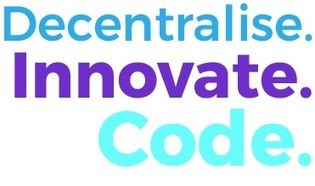
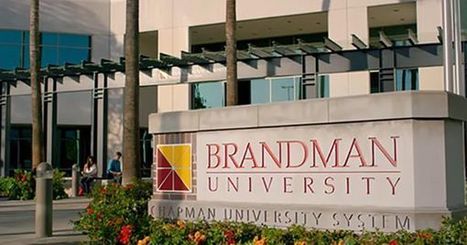



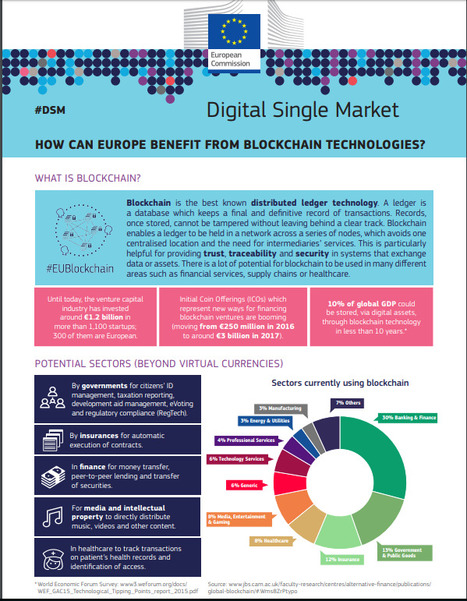



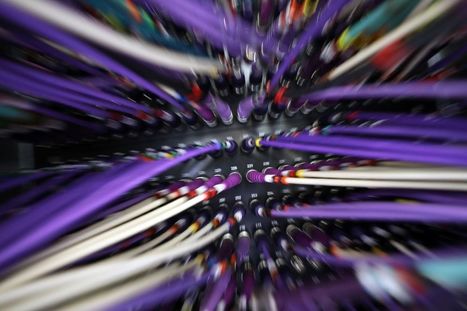

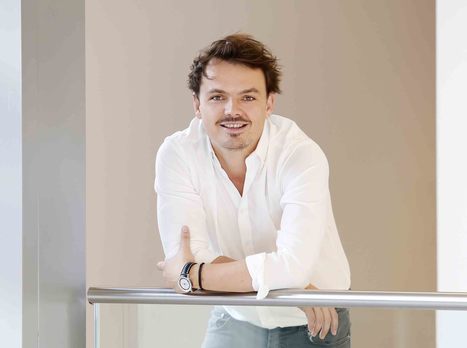
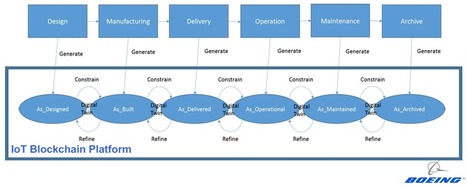

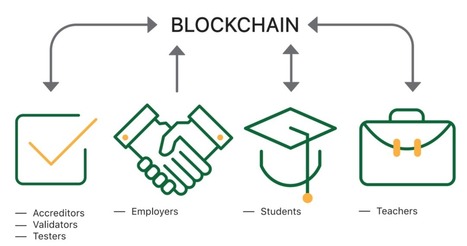


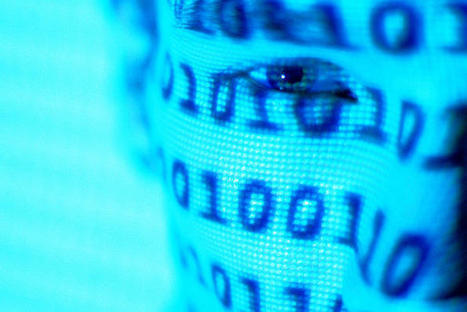
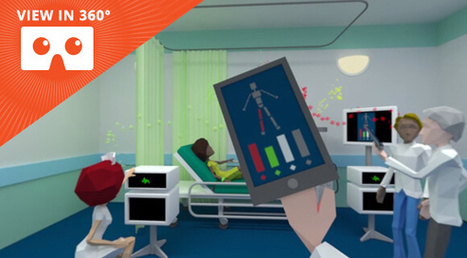
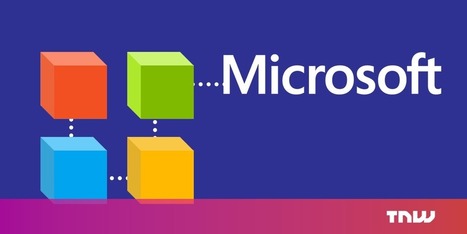


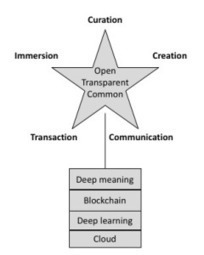
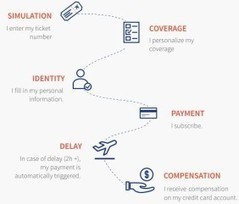

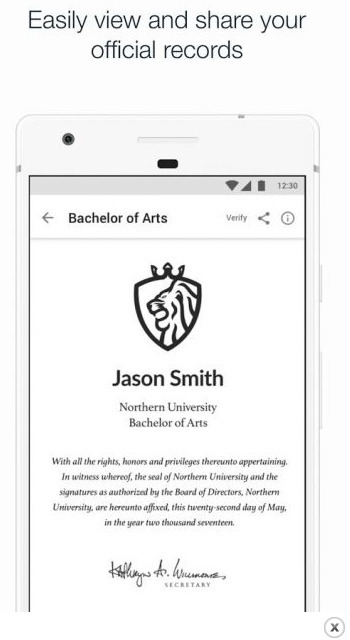






How blockchain can help
The report explains how blockchain technology can be used to generate and store sensitive personal records online or on mobile apps - such as birth certificates, driving licences or professional qualifications - for instant proof of identification. Universities can create degree certificates that can be shared by graduates with prospective employers at the touch of a button. They can be instantly verified, with no need to run a credentials check with a third party. It frees us all from the time-consuming, inefficient, paper-based credentials system, saving time and money, improving efficiencies and helping to eliminate fraud.
These systems are already in use. Here at PwC, we have partnered with, among others, the Institute of Chartered Accountants and a major European university to develop our Smart Credentials blockchain platform. It shares the credentials of chartered accountants and technology graduates in a ‘digital wallet’, saving a huge amount of time and money in the verification process, while combating fraud. Students can also add any number of documents to it, from their birth certificates to a sporting qualification, which they can control and share. Going forward, we plan to scale our experience of Smart Credentials in a deeper transformational context, working with aligned service providers covering technology and resourcing, to build what is effectively an internet of credentials.
Learn more / En savoir plus / Mehr erfahren:
https://www.scoop.it/t/21st-century-learning-and-teaching/?&tag=blockchain